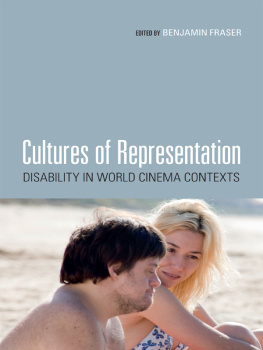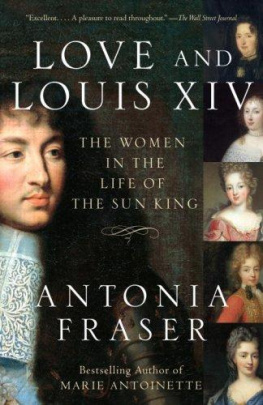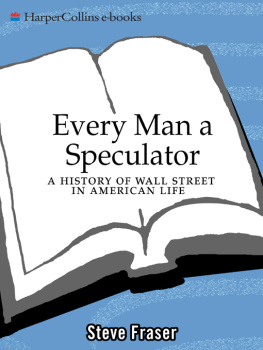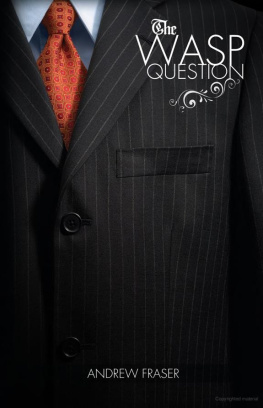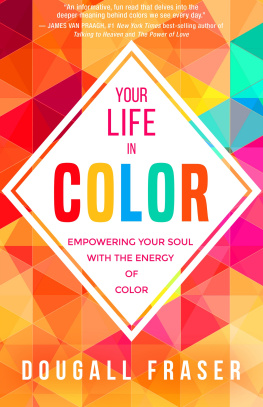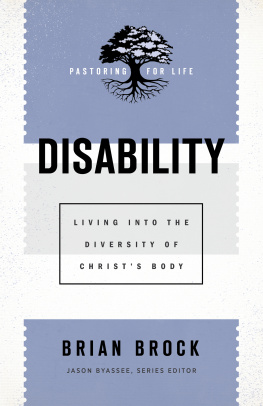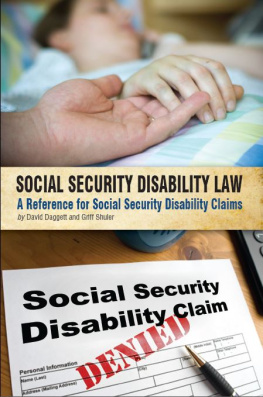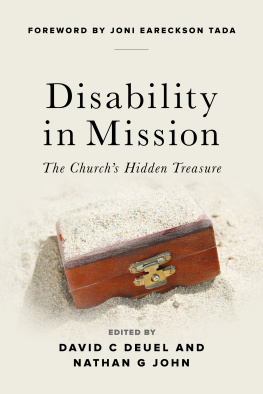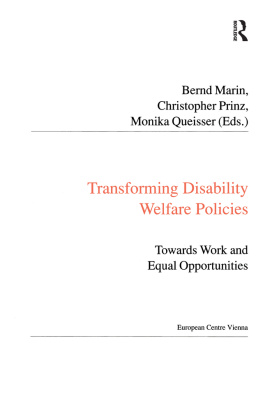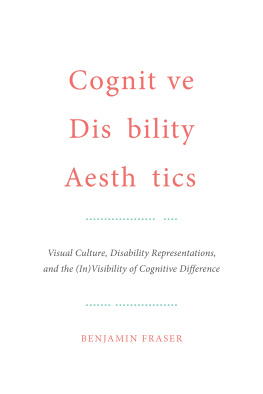Table of Contents
Cultures of Representation
Cultures of Representation
DISABILITY IN WORLD CINEMA CONTEXTS
EDITED BY
BENJAMIN FRASER
A Wallflower Press Book
Wallflower Press is an imprint of
Columbia University Press
publishers since 1893
New York
cup.columbia.edu
Copyright 2016 Columbia University Press
All rights reserved
E-ISBN 978-0-231-85096-4
Wallflower Press is a registered trademark of Columbia University Press
A complete CIP record is available from the Library of Congress
ISBN 978-0-231-17748-1 (cloth : alk. paper)
ISBN 978-0-231-17749-8 (pbk. : alk. paper)
ISBN 978-0-231-85096-4 (e-book)
Cover image: Yo, Tambin (2009) Olive Films
A Columbia University Press E-book.
CUP would be pleased to hear about your reading experience with this e-book at .
Contents
Benjamin Fraser
David T. Mitchell and Sharon L. Snyder
Paul Petrovic
Michael Gill
Sanjukta Ghosh
Susan Antebi
Mitzi Waltz
Jos Alaniz
Katherine Lashley
Petra Anders
Candace Skibba
Anna Grebe
Jennifer Griffiths
Susan Flynn
Ken Junior Lipenga
James A. Wren
Rosa Holman
I have drawn inspiration and received encouragement from many teacher-scholars and colleagues during my years at College of Charleston and now East Carolina University who deserve my thanks, whether for collaborative efforts on disability film series, conversations or both: Nancy Ausherman, Martha Chapin, Liz Johnston, Morgan Koerner, Cindy May, Marylaura Papalas, Alison Piepmeier, Steve Sligar and Alison Smith. Thanks also to the Film Studies folks at ECU, particularly Anna Froula, Amanda Klein and Justin Wilmes. Special thanks to all those seeking to bring Hispanic Studies into dialogue with Disability Studies as an interdisciplinary area above all Susan Antebi, Encarnacin Jurez Almendros and Matthew Marr, but also Julie Avril Minich and Victoria Rivera-Cordero. Thanks too to the graduate students and faculty at the University of Illinois for an invitation to speak there on disability and Spanish cultural production in 2015, which proved very encouraging. I am most grateful to Abby, Ben and Judd, from whom I continue to learn much about disability and society outside of academic contexts.
JOSE ALANIZ is associate professor in the Department of Slavic Languages and Literatures and the Department of Comparative Literature (adjunct), and director of the Disability Studies Program at the University of Washington Seattle. He is the author of Komiks: Comic Art in Russia (University Press of Mississippi, 2010) and Death, Disability and the Superhero: The Silver Age and Beyond (University Press of Mississippi, 2014).
PETRA ANDERS is a lecturer at Ostfalia University of Applied Science, Wolfenbttel, Germany. She is the author of Behinderung und psychische Krankheit im zeitgenssischen deutschen Spielfilm. Eine vergleichende Filmanalyse (Knigshausen & Neumann, 2014).
SUSAN ANTEBI is associate professor of Spanish and director of the Latin American Studies Program at the University of Toronto. She is the author of Carnal Inscriptions: Spanish American Narratives of Corporeal Difference and Disability (Palgrave Macmillan, 2009) and co-editor, with Beth Jrgensen, of Libre Acceso: Latin American Literature and Film through Disability Studies (SUNY Press, 2016).
SUSAN FLYNN is a doctoral graduate of the Equality Studies Centre at the School of Social Justice, University College Dublin, and a lecturer in media and cultural studies at the University of the Arts, London. She has published in a range of international journals including the American, British and Canadian Studies Journal and Considering Disability Journal.
BENJAMIN FRASER is professor of Hispanic Studies and chair of Foreign Languages and Literatures at East Carolina University in North Carolina. He is the author of, amongst other publications, Deaf History and Culture in Spain (Gallaudet University Press, 2009) and Disability Studies and Spanish Culture: Films, Novels, the Comic and the Public Exhibition (Liverpool University Press, 2013). His articles on disability themes have appeared in such journals as Cultural Studies, Journal of Literary and Cultural Disability Studies, Arizona Journal of Hispanic Cultural Studies, Bulletin of Spanish Studies, Hispanic Issues Online, Hispania and Dieciocho.
SANJUKTA GHOSH is professor in the Department of Communication and the Womens and Gender Studies Program at Castleton University in Vermont. She has published in a variety of international journals such as Alternatives and in anthologies on race, gender and sexuality.
MICHAEL GILL is assistant professor of Disability Studies in the School of Education at Syracuse University. He is the author of Already Doing It: Intellectual Disability and Sexual Agency (University of Minnesota Press, 2015) and the co-editor, with Cathy Schlund-Vials, of Disability, Human Rights, and the Limits of Humanitarianism (Ashgate, 2014).
ANNA GREBE is a lecturer at the University of Vienna and the JohannesKepler-Universitt in Linz, Austria. She is an associate member of the DFG research group Media and Participation: Between Demand and Entitlement at the University of Konstanz and member of the Chilean research group Arte y Nuevos Medios at the University of Valparaso.
JENNIFER S. GRIFFITHS is a lecturer at Iowa State University College of Design Rome and the American University of Rome. Her articles on issues of gender and representation have appeared in Gastronomica, Womens Studies Quarterly.
ROSA HOLMAN is a researcher with the Alfred Deakin Institute for Citizenship and Globalisation at Deakin University in Melbourne. She is the author of various publications, with her research on Iranian cinema appearing in the journals Senses of Cinema and Screening the Past.
KATHERINE LASHLEY is a PhD candidate in English at Morgan State University and an adjunct in the English Department at Towson University. She has published a memoir about growing up with an older autistic sister entitled My Younger Older Sister (2001).
KEN JUNIOR LIPENGA is a lecturer in the English department at Chancellor College, University of Malawi. He has published articles on disability in several journals, including the African Journal of Disability, Journal of African Cultural Studies and Agenda: Empowering Women for Gender Equity.
DAVID T. MITCHELL AND SHARON L. SNYDER are the co-authors of Narrative Prosthesis: Disability and the Dependencies of Discourse (University of Michigan Press, 2000), Cultural Locations of Disability (University of Chicago Press, 2006) and The Biopolitics of Disability: Neoliberalism, Ablenationalism, and Peripheral Embodiment (University of Michigan Press, 2015). They are also the creators of three award-winning films about disability arts, history and culture. Together they helped found the Committee on Disability Issues in the Profession at the Modern Languages Association as well as researched, wrote and curated a Chicago Disability History Exhibit for Bodies of Work: Disability Arts and Culture Festival, and also are producing a new film on the social and surgical issues involved with esophageal atresia.

